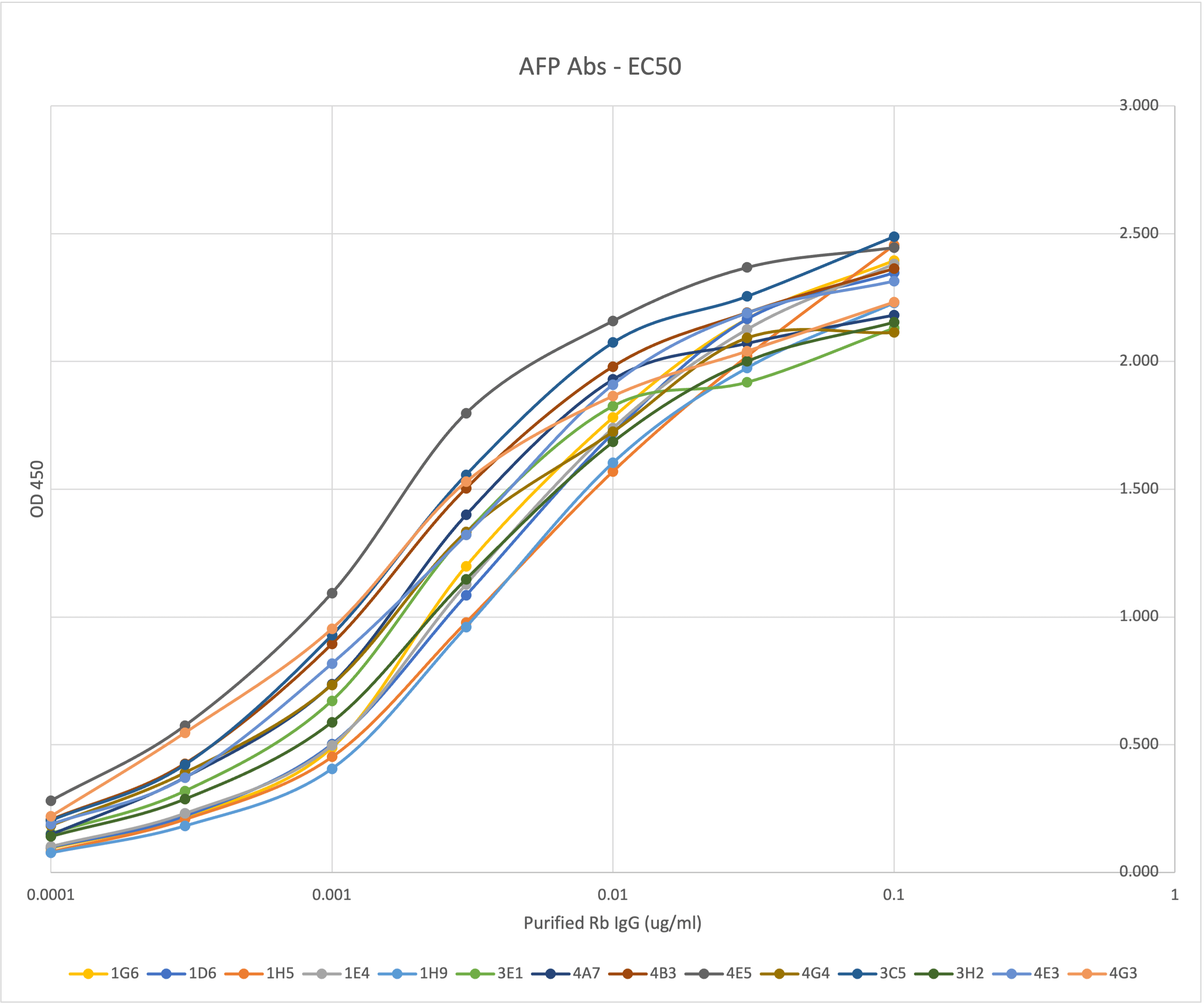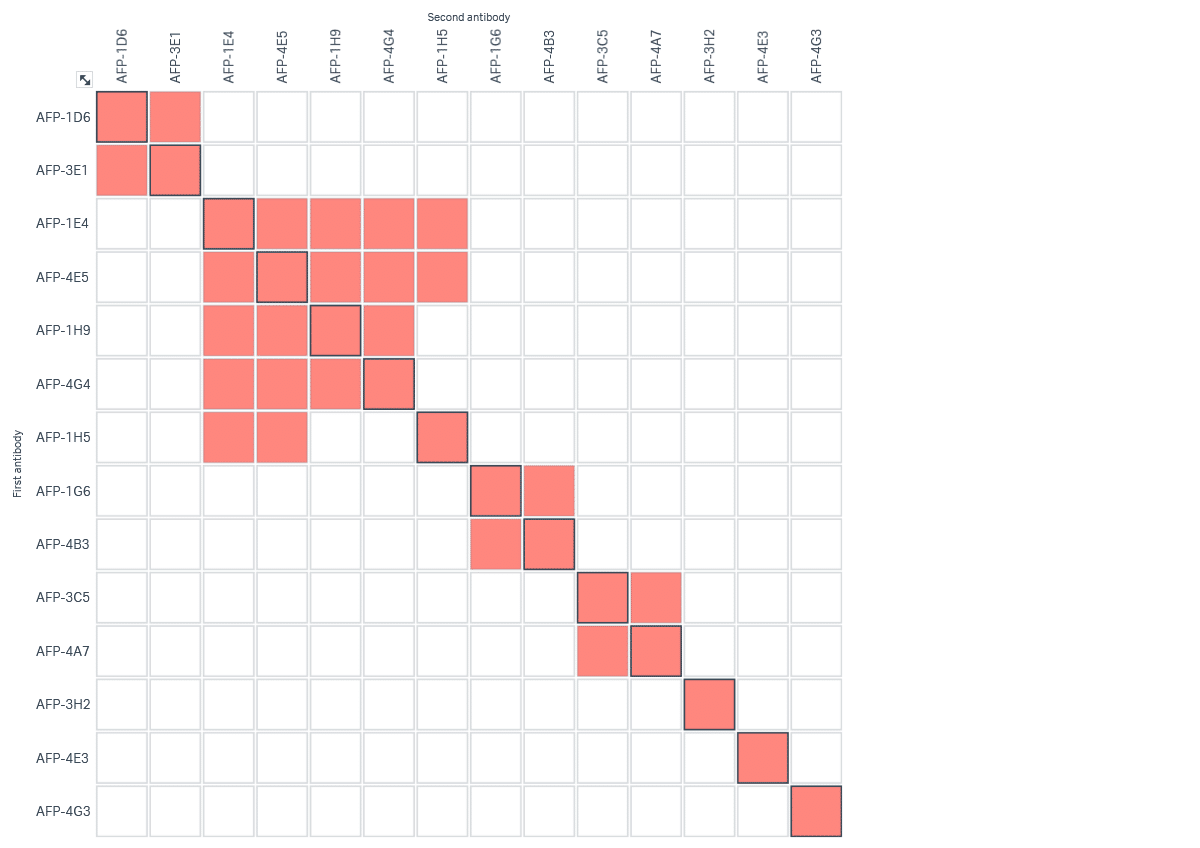Alpha Fetoprotein Rabbit monoclonal antibody, 4E5
$250.00 – $450.00
| Product Name | Alpha Fetoprotein Rabbit monoclonal antibody, 4E5 |
| Catalog Number | AF-4E5AF-4E5 |
| Immunogen | Alpha Fetoprotein |
| Host | Rabbit |
| Preparation | Recombinant monoclonal antibody expressed in HEK293F cells and purified by protein A affinity chromatography. |
| Isotype | rabbit IgG, kappa |
| Conjugation | Unconjugated |
| Clonality | Monoclonal |
| Concentration | 1mg/ml |
| Purification | Protein A affinity chromatography |
| Storage buffer | PBS |
| Storage conditions | For long term storage, the antibody should be stored at -20℃ and is stable for 12 months from the date of receipt. Avoid repeated freeze-thaw cycles. For short term storage, keep at 4oC for a week should be fine. |
| Application Dilution | 1:1,000-1:100,000 (platform dependent, customers must test the optimal concentration on their own platform) |
Additional information
| Size | 100µg, 1mg |
|---|
Background information
The significance of AFP (Alpha-Fetoprotein) immunoassay screening extends across diverse medical contexts, playing a pivotal role in early disease detection, prenatal care, and the comprehensive management of conditions. AFP, a crucial biomarker, is closely linked to liver diseases and certain cancers, particularly hepatocellular carcinoma.
In prenatal care, AFP screening assesses maternal blood levels, aiding in the identification of potential neural tube defects or chromosomal abnormalities in the developing fetus. This early insight allows for timely medical interventions and personalized care plans.
For cancer patients, regular AFP immunoassay screening is essential. Elevated AFP levels can indicate the presence of liver cancer and serve as a valuable tool for monitoring treatment effectiveness and detecting signs of cancer recurrence. The precision offered by immunoassays ensures accurate measurements, enabling healthcare professionals to make informed decisions about patient care.
In the realm of disease management, AFP screening guides healthcare professionals in monitoring liver diseases and tailoring treatment plans based on changes in AFP levels. Additionally, AFP screening contributes to public health initiatives by being incorporated into screening programs, identifying health issues related to AFP abnormalities and fostering preventive measures for the broader population.
Moreover, AFP immunoassay screening holds paramount importance in research and clinical trials. Accurate measurement of AFP levels is fundamental for understanding diseases, evaluating the impact of experimental treatments, and advancing therapeutic interventions.
In essence, AFP immunoassay screening emerges as a multifaceted tool, indispensable for its role in early detection, prenatal care, cancer monitoring, disease management, public health initiatives, and advancements in medical research and clinical trials.
Datasheet
| Datasheet | Download |
Validation data
| Validation data | Download |


Reviews
There are no reviews yet.